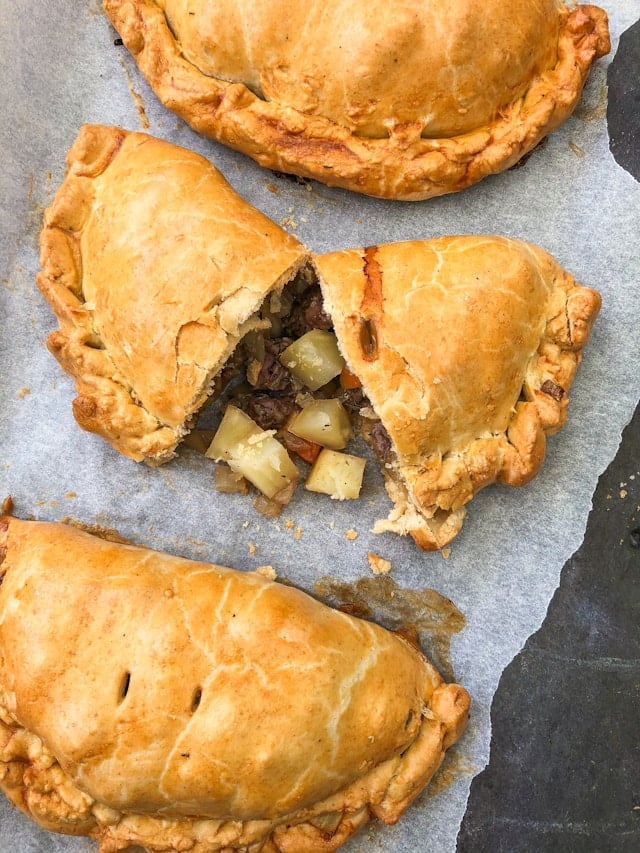The scent of a freshly baked, perfectly golden quiche Lorraine wafting from your oven is a culinary delight that can make any day transform into a special one. This classic French dish, with its creamy filling and delicate crust, is a testament to the power of simplicity in cooking. The harmonious blend of ingredients like cheese, pastry, and bacon into a dish that looks as divine as it tastes is no small feat. However, with the right guidance, you will be on your way to mastering this timeless recipe.
Within this article, we will guide you through the essential steps of preparing a quiche Lorraine with pâte brisée crust. The separate sections will delve into the specifics of preparing the crust and filling, and baking the quiche to perfection. The aim is to provide a comprehensive guide to help you craft a French quiche that will leave your guests asking for more.
A lire également : How to Infuse a Smoky Flavor into a Vegan Black Bean Soup with Chipotle?
Crafting the Perfect Pâte Brisée
The creation of an exquisite quiche Lorraine begins with the pâte brisée, or shortcrust pastry. This simple dough forms a perfectly crumbly and flaky crust that is the hallmark of an authentic quiche. The crust provides the ideal base for the creamy filling, balancing out the richness with its subtle, buttery flavor.
To start, you need 2 cups of all-purpose flour, 1 teaspoon of salt, 1 teaspoon of sugar, 1 cup of cold, unsalted butter, and 4 to 6 tablespoons of ice water. Combine the flour, salt, and sugar in a large bowl before cutting in the butter. This process involves working the butter into the flour until the mixture resembles breadcrumbs. Remember that speed is essential here as you don’t want the butter to melt. Once you achieve the desired texture, gradually add the water until the dough comes together.
Dans le meme genre : What’s the Key to a Rich and Hearty Irish Beef and Guinness Stew?
After forming the dough, wrap it in cling film and refrigerate for a minimum of 30 minutes. This chilling period allows the gluten in the flour to relax, resulting in a more tender crust. Once you’ve given your dough the necessary time to chill, it’s time to roll it out and prepare it for the filling.
Preparing the Lustrous Quiche Filling
While your dough is chilling, it’s time to prepare the quiche filling. The filling for a quiche Lorraine is a decadent blend of cream, eggs, cheese, and bacon. This combination of ingredients results in a velvety, savory filling that pairs beautifully with the crumbly crust.
To prepare the filling, you will need 5 large eggs, 1 1/4 cups of heavy cream, 1 cup of grated cheese, and 8 ounces of bacon. Begin by frying the bacon until it is crispy and then draining it on kitchen paper. In a large bowl, beat the eggs and cream together until they are well combined. Add the cheese and cooled bacon to the egg and cream mixture and stir until everything is evenly distributed.
Baking the Quiche to Perfection
With your dough rolled out and your filling prepared, it’s time to bring everything together. Preheat your oven to 375 degrees Fahrenheit (190 degrees Celsius) and roll your dough into a tart or quiche pan. Make sure to press the dough into the corners of the pan and trim any excess from the edges.
Next, pour the filling into the crust. It’s important to do this slowly to prevent the filling from spilling over the sides. Once all the filling is in the crust, place the quiche on a baking sheet and put it in the oven. Bake for about 35 to 40 minutes, or until the quiche is set and the crust is golden.
Mastering the Art of Quiche Lorraine
Crafting a flawless quiche Lorraine is more than following a recipe; it’s about mastering the art of balancing flavors and textures. The buttery, crumbly crust should complement the creamy, savory filling, and neither should overpower the other. By following this guide, you have embarked on a journey towards achieving this delicate balance.
Remember, practice makes perfect. Don’t be disheartened if your first attempt doesn’t turn out exactly as planned. Each attempt brings you closer to your goal of mastering this beloved French dish. Happy baking!
Incorporating Tools and Techniques for a Stellar Quiche Crust
When creating a delectable quiche Lorraine, the right tools and techniques often make all the difference. For this scrumptious French delicacy, the keys are a sturdy rolling pin, a quality food processor, and a reliable tart pan.
Before you begin, make sure your food processor is clean and ready to go. Combine your dry ingredients – flour, salt, and sugar, and then add your cold butter. Pulse until a coarse, breadcrumb-like consistency is achieved. Here, the food processor’s speed and efficiency shine, allowing you to work quickly to prevent the butter from melting, which is crucial in achieving the perfect shortcrust pastry.
After adding the ice water, you should have a dough just malleable enough to form into a disk. At this point, it’s crucial to wrap your pastry dough in plastic wrap and let it rest. This allows the gluten to relax, leading to a tender, flaky pâte brisée.
Once your dough has chilled, use your rolling pin to roll it out evenly. Ensure that your pie crust is not too thin or thick. A good rolling pin will give you the control you need to achieve the correct thickness.
After you’ve shaped your pastry dough into the tart pan, it’s time for blind baking. This involves lining your crust with parchment paper and filling it with pie weights (or dried beans) to prevent the crust from puffing up. Then, bake this crust in your preheated oven for about 10 minutes. Remove the weights and parchment paper, and bake for another 10 minutes or until the crust is slightly golden. This technique ensures your crust is perfectly baked and ready for the filling.
Conclusion: Crafting Your Own Quiche Lorraine Masterpiece
There’s no doubt that a sumptuous quiche Lorraine is a testament to the elegance of French cuisine, showcasing the beautiful blend of simplicity and sophistication. By finding the perfect balance between a delicate, flaky pâte brisée and a rich, savory filling, you’re able to create a dish that entices the senses and leaves a lasting impression.
Don’t forget that, like any other culinary endeavor, mastering the quiche Lorraine requires practice and patience. While your initial attempts might not yield the perfect quiche, they are crucial steps in the learning process. Each time you combine the flour and butter, each time you carefully pour the mixture into the crust, you’re honing your skills and inching closer towards perfection.
So, roll up your sleeves, gather your ingredients, and embark on this culinary journey. The path to perfecting your homemade French quiche Lorraine is within reach. Remember, the reward – a beautifully baked quiche, with its tantalizing aroma and mouthwatering taste – is worth every moment spent crafting it. Bon appétit!











